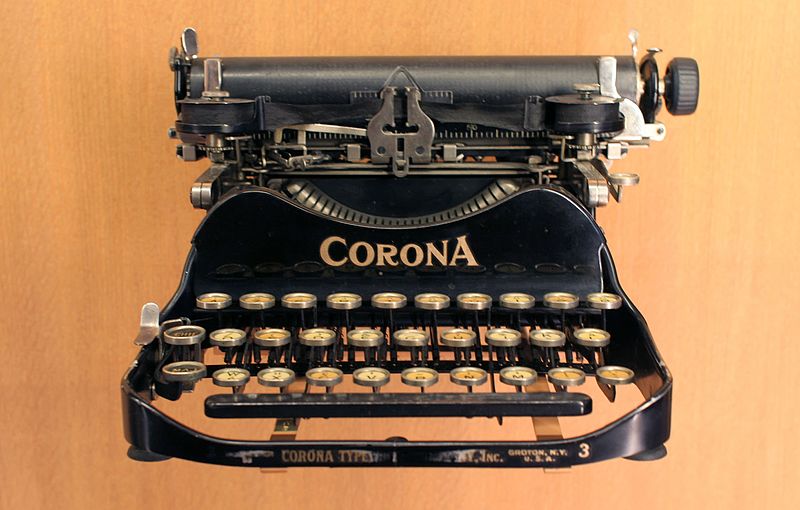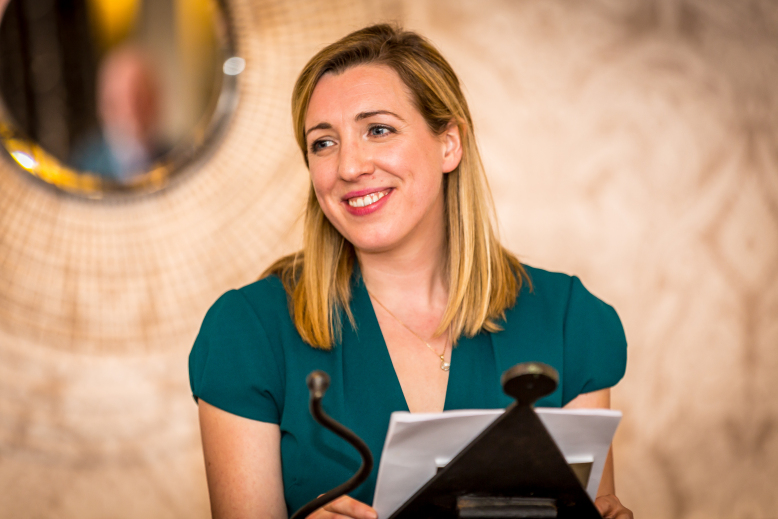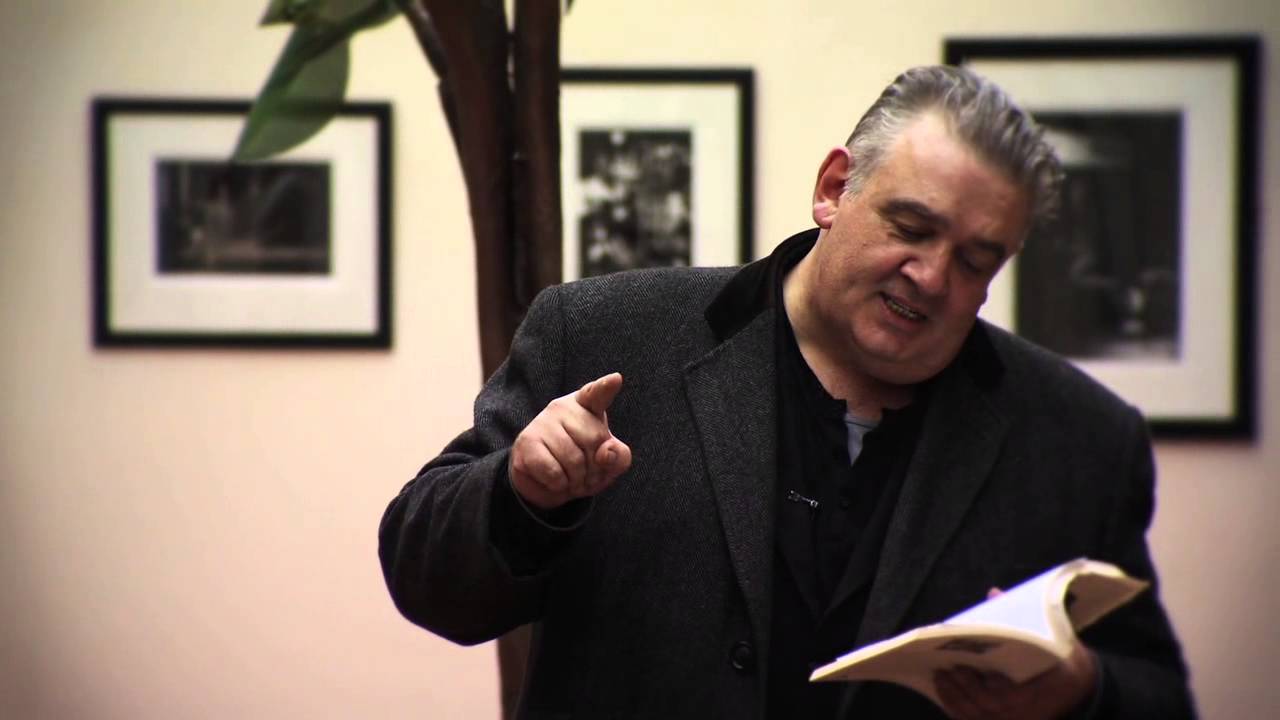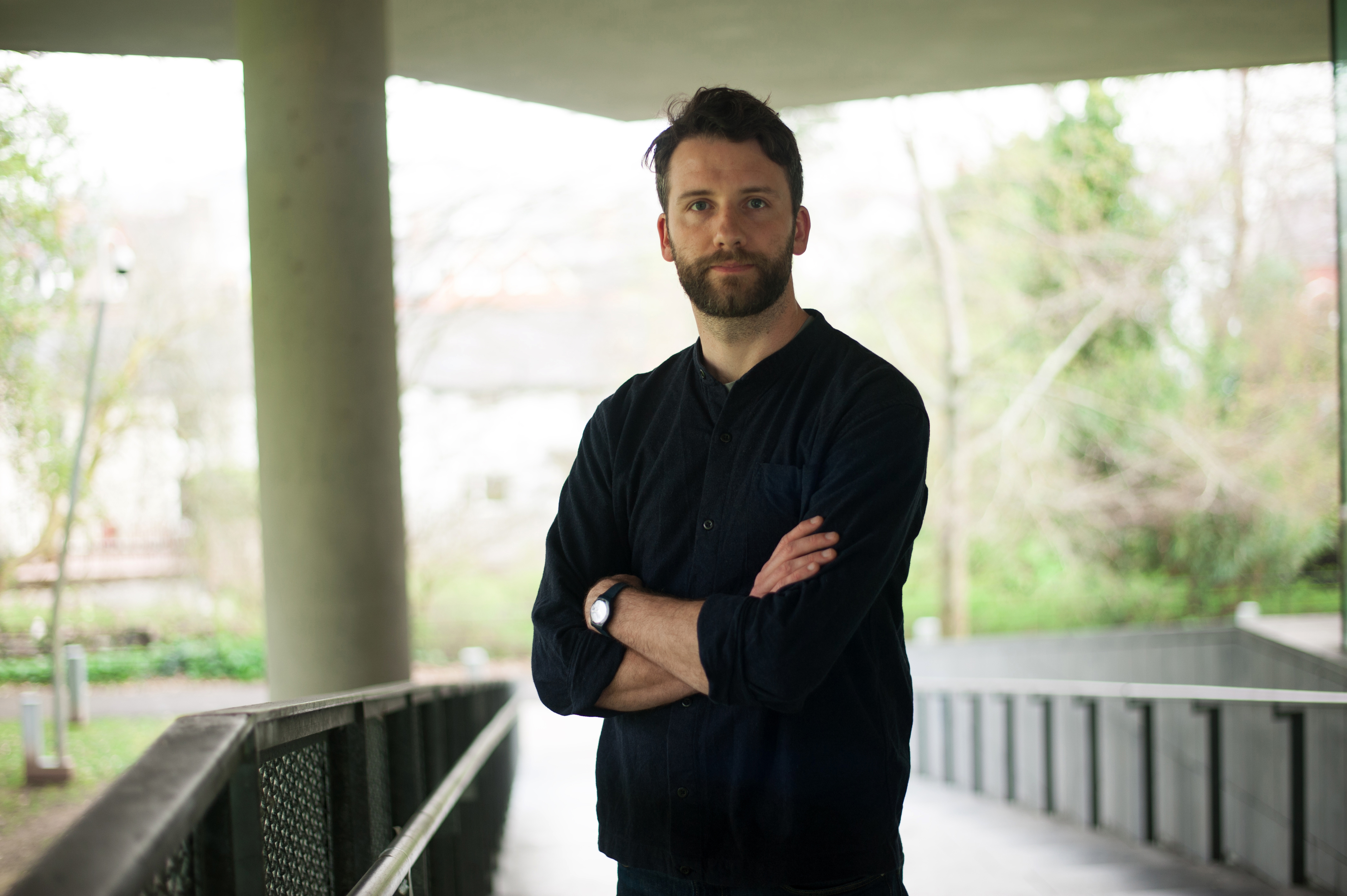
Coyau / Wikimedia Commons / CC BY-SA 3.0
Fiona Whyte is a PhD student in Creative Writing at UCC. This extract, with its plague echoes, is from work she’s submitting as part of her doctoral thesis, a novel inspired by the life of the 5th century Saint Cuthbert. In today’s second piece, MA graduate, Sue Lewando, ponders on what makes a story and why we’re all addicted to them.
Let These Things Be Written (an extract)
They beached the boat at the foot of the Royal City and climbed the hill to the fortress. Wilfrid kept a few paces behind Bishop Cuthbert, picking his way slowly over the frost and ice-stitched path. The top of the hill was alive with birds. A rolling sea of black. Ravens, hooded crows, black-backed gulls. Beating wings, they swooped and dived, rose and swooped again, shrieked and cried and swirled around each other like warriors in a battle dance. Wilfrid pulled up his hood and tried to keep his face covered as they moved ever closer to the demented torrent of birds that plunged so close now they had to swipe them away with their hands. But the birds, this whirling mass of demons, had not come for the living. Just outside the walls of the fortress was a huddle of corpses, clothing ripped, faces, hands, any exposed parts picked over by the birds, plucked clean of flesh. One corpse lay on its back, mouth open, lips ripped away, bloodied hollows where the eyes should have been. Wilfrid stepped back, shuddering. He swallowed down the bile rising in his throat, and then, following Cuthbert’s example, made the sign of the cross over the dead.
A watchman admitted them inside the gates. He eyed Cuthbert’s pectoral cross anxiously.
‘Why are these people unburied?’ Cuthbert said, his voice harsh and rasping. His throat must be sand-dry from lack of food and liquid, Wilfrid thought. He had been fasting for days. ‘Why were they not afforded the King’s protection within the walls?’
The watchman was a small, thin lad, younger than Wilfrid, too young for battle. A sword, too large to be his own, hung heavily from his waist.
‘They had plague, Bishop. Before he left for Pictland the King warned that no pestilence carriers were to be admitted to the city. No one was to touch them or come within ten paces of them. They were ordered away time and again, but they kept coming back.’
Cuthbert joined his hands as if he would pray, though Wilfrid noticed how he appeared to clench his hands tightly together.
‘It is a violation of every sacred rule and custom to leave their mortal remains here unburied and unblessed. Even under the old gods due respect was accorded to the bones of the dead. This, this is a sacrilege. See that they are buried. I will say the funeral rites myself once I have spoken with the Queen.’
The boy watchman shuffled from foot to foot, looked miserably at the ground as he spoke.
‘No one will touch them, Bishop, for if they do they may not be let back into the fortress. Ecgfrith King says he has built walls against the plague. He will keep the plague beyond these walls as surely as he will keep the Picts beyond the boundaries of our territory. The bodies are to be left to the birds of the skies to serve as a warning to others who are plague-ridden from spreading their contagion here. Those are the orders of Ecgfrith King and must be upheld until he returns. The Queen herself would not go against them.’
Cuthbert put his hand under the boy’s chin, lifted it so the boy had no choice but to look at him directly.
‘I will bury them myself if I have to,’ Cuthbert said.
Fiona Whyte
What’s in a Story?
Imagine the darkness of a tribal night, and the tales that hang on the flickering firelight; the actor on stage, enthralling his audience; the beer-swiller in front of an action movie. Imagine the reader curled in a swing seat; the poet at open mic night. For each of them, the surroundings have evaporated, story has taken over. The love of story rests deep in the human psyche, and has done for so long the centuries disappear back into the mists of time.
In Ireland, I’m greeted with the words: What’s the story, anything new or strange? When I moved here, a few years back, this was alien to my English ears, but the words strike the writer’s chord full on. My friends don’t want to hear a list of personal gripes, the same old, life’s irritations regurgitated. It’s also likely they don’t want a discussion on politics or what was on TV. They’re asking if anything interesting and personal has happened in my life. They’re seeking a story, and want to be entertained.
In real life conversation rolls around a subject, going off at a tangent, skipping around stories, anecdotes, and interruptions. The storyteller can digress to the point that the punchline gets lost in the landslide of words, but by then someone else has taken the floor, so it doesn’t matter. It’s what turns the social wheel. But when someone comes up with a new story, something you haven’t heard before, don’t you lean forward just slightly, focus, and listen?
Fiction isn’t like real life. It can’t ramble around the houses, or the reader will lose the plot, then lose interest. It must grab the imagination, and not let go. However, writing fiction which achieves that goal is like playing a game of chess against yourself. You might think, how can you fail, but perhaps you should wonder how you can possibly win, when you’re fighting on both sides of the board, and each move changes the game plan. The story you’re seeking is sometimes a moving target, and hitting the target is a skill that needs to be learned and practised.
Even if the tale has been triggered by a real event with real people, the author is not trying to tell the truth. If you like, fiction is a compound lie, driving towards some kind of closure. Even when the underlying story nugget comes from the same source – a prompt in a writing circle, for instance – no two writers will envisage the same characters, the same situation, the same plot.
For some readers, a good book means a literary novel with prose that can be enjoyed for its own sake. For others, it rests in a driving story with a dramatic ending. Who are we to judge? Whatever reason for the eventual choice, however justified in terms of literary value, fiction should enthral or transport the reader, or it has failed in its task.
Sue Lewando
TOMORROW: an extract from Danny Denton’s new novel and “Tower of Ravens” by Christine Kannapel.




